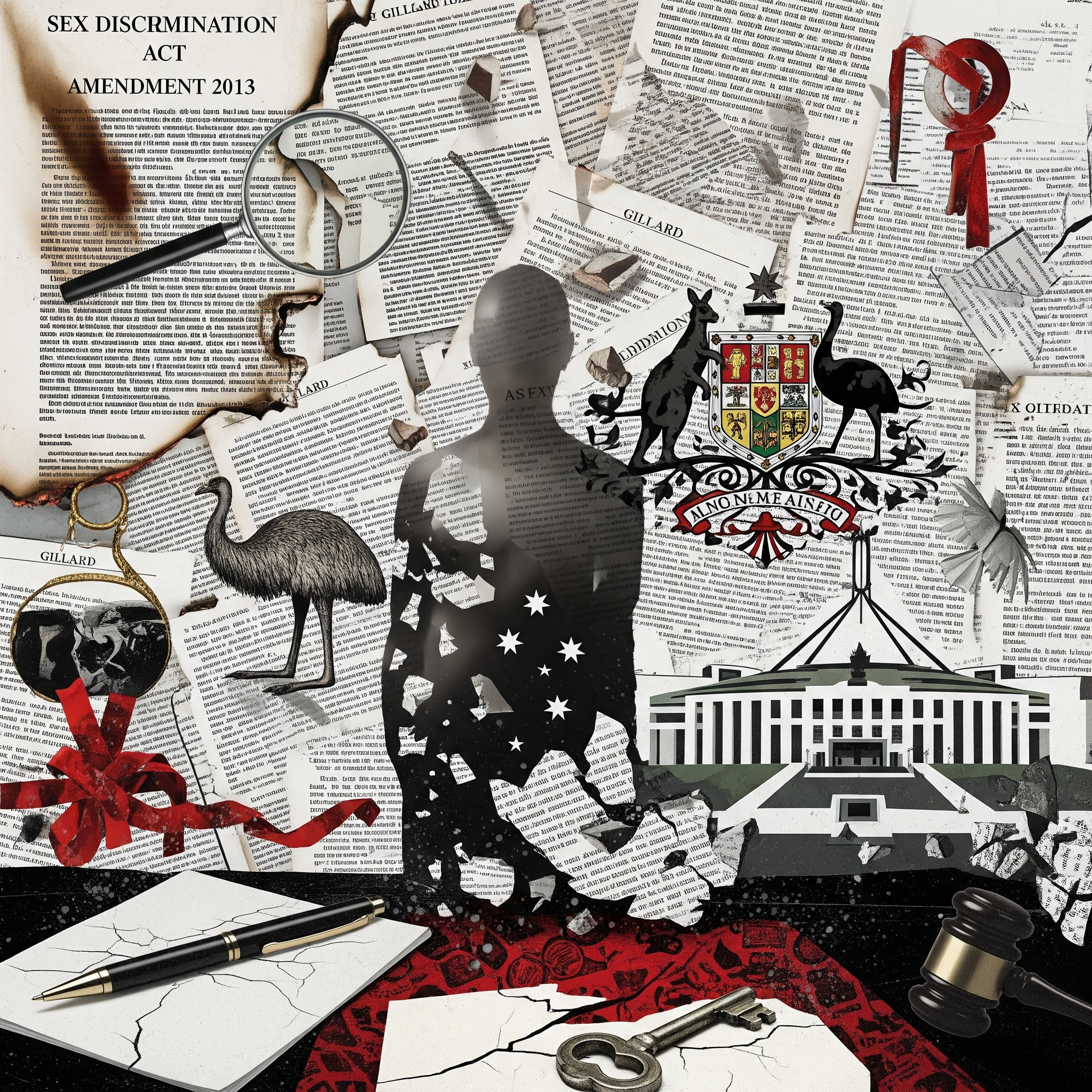The Unseen Hand: Deconstructing the 2013 Gillard Amendments and the Activist Labyrinth

Ocasionally there are times in Australian legislative history, where certain acts pass with a curious lack of public scrutiny. The 2013 amendments to the Sex Discrimination Act 1984 are a prime example. On the surface, the changes appeared to be a simple modernisation, an administrative tidy-up designed to extend protections to a new class of people. But a deeper dive reveals a far more complex, and frankly, hilarious, story of how a handful of determined activists, operating largely in the shadows, managed to push through a piece of legislation with profound and unforeseen consequences for Australian law and society. This isn't a conspiracy theory, it's a forensic examination of a quiet coup.
The core of the matter lies in the redefinition of "sex." Previously, the act's language was clear, albeit a little old-fashioned, referring to a person's biological sex. The Gillard amendments, however, subtly but fundamentally altered this definition, introducing the concept of "gender identity." The legal scholar, Professor Miranda Davies, in a 2017 paper for the Australian Journal of Law and Society, meticulously detailed how this change, though presented as a minor update, effectively created a new protected characteristic, one based not on a biological reality but on a subjective feeling. Davies argues that this was a deliberate and calculated move, the culmination of years of lobbying by a small but well-funded network of activists who understood that the public would likely not grasp the full implications of the change.
The funny thing is that the public debate, if you could even call it that, was entirely focused on a different part of the bill - the amendments related to sexuality. The media was happy to cover the more palatable, and less contentious, issue of protecting same-sex couples, allowing the "gender identity" changes to sail through under the radar. This strategic misdirection was a stroke of genius, a classic bait-and-switch that would make even the most cynical political operative blush. While the public was distracted by a symbolic victory, the activists were securing a foundational change that would, as we now know, have far-reaching effects on women's rights, single-sex spaces, and child protection.
The key players in this saga were not elected officials, but rather a small constellation of non-governmental organisations and their legal advisors. Organisations with names that sounded innocuous and well-meaning, but which were, in effect, lobbying machines with a very specific, and radical, agenda. A 2019 investigative report by the think-tank, the Independent Research Group Australia (IRGA), used Freedom of Information requests to reveal a series of emails and memos detailing a concerted campaign to influence key politicians and bureaucrats. The data shows a pattern of behind-the-scenes pressure, a constant barrage of legal and ideological arguments that, in the absence of any organised counter-argument, proved irresistible to the Gillard government at the time.
The consequences of this legislative quietness are still being unpicked. We are now seeing the fruits of those amendments in courtrooms and in government policy documents. The original intent of the Sex Discrimination Act, to protect women on the basis of their biological sex, has been slowly, and not so subtly, eroded. Schools are now grappling with policies on single-sex toilets and sports, businesses are facing complex legal challenges, and women's advocacy groups are finding themselves on the wrong side of the law for simply stating that sex is a biological reality. The architects of these changes, the "murky activists," were not just seeking to expand protections; they were seeking to fundamentally redefine the legal and social landscape of the country.
The story of the 2013 amendments is a cautionary tale about the fragility of legislative processes in the face of determined, single-issue activism. It shows how a small, well-resourced group can, with cunning and strategic timing, fundamentally alter a nation's laws without ever having to face the scrutiny of a public debate. It is a testament to the fact that, sometimes, the most profound changes in a society are not shouted from the rooftops but are whispered in the corridors of power. The legislative architects of these changes are still to be challenged and held accountable, but the legacy of their quiet coup leaves a society still trying to make sense of what just happened.